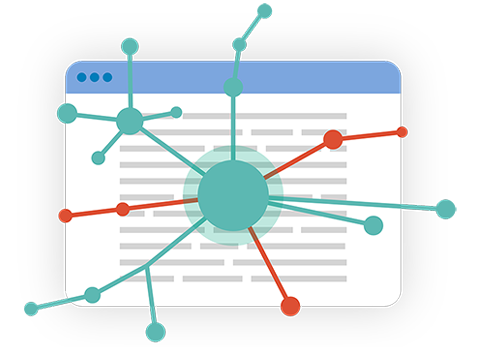
We have been long been led to believe that artificial intelligence should be left to the experts. But education and experience alone should not define who can be an expert. Rather, we feel anyone can be an expert with the right tools and ingenuity!
We created the expert.ai NL API with the goal of making our natural language technology more accessible and easier to use. In doing so, we are confident that new groups of people and organizations will take on their data issues and seek out opportunities to improve their business processes using artificial intelligence.
Key Terms Every NL Expert Should Know
Before you get down to business, there are some important things you should know about our natural language technology to help elevate you to expert status.
Disambiguation
There is so much unstructured data available to us, but it is useless if you cannot fully understand the meaning within it. We resolve ambiguity by performing disambiguation via the interaction between our embedded semantic engine and knowledge graph. This helps to distinguish between the various meanings of all elements (e.g., does “foot” refer to a body part or measurement?) in a sentence through “reasoning,” and provide proper context throughout the text.
In other words, our disambiguation process represents text in terms of concepts, entities and the relationships that exist between them. This is the foundation of a cognitive and conceptual map of text, which is a key element of language understanding.
Text Classification and Categorization
You can perform syntactic analysis without understanding the true meaning of a text, but understanding the meaning is the only way to classify your text in a consistent and accurate manner. To classify your text, we leverage our many taxonomies, which are used to organize documents through recognition and differentiation of content. Automatic categorization of text according to a predefined taxonomy is a common method for organizing and curating information.
For example, we offer a media taxonomy that can classify your documents into categories such as sports, science and technology. We also offer a geographic taxonomy that can identify and categorize your documents by location, even if there is no explicit mention of a city, state or country. For example, an article that covers the Eiffel Tower would be classified under France, even if there is no mention of the geographic location.
Syncons
Just as a single word can mean many different things, many words can share the same meaning (also known as a synonym). As we define it, a group of synonyms is known as a syncon. These concepts enable our knowledge graph to group all the variations used in text to describe the same terms.
For instance, the concept “plane” can also be referred to as aircraft, airplane or aeroplane. These additional terms would therefore fall under the “plane“ syncon. Identifying syncons in a text is one of the core techniques used to accurately assess the context of entire documents.
Lemmatization
Language can be overwhelming when you consider the number of forms a word can take due to conjugation, pluralization and more. Lemmatization is the process of grouping together the inflected forms of a word so they can be analyzed as a single item. This item is the known as the lemma, or root form of a word as found in a dictionary. For example, run, runs and running are all terms that share the same root word and meaning.
Lemmatization is a more precise method of grouping the inflected terms of a word when compared to stemming, as it leverages contextual understanding to do so. This is particularly useful for applications like chatbots and virtual assistants which require a higher level of precision for success.
The NL API and How to Use It
You’re probably eager to get going, so here is a quick primer on how to use the NL API and what you can expect to accomplish with it.
SDKs and Jupyter Notebooks on GitHub
Currently, we offer SDKs (software development kits) for our NL technology for Python and Java. So regardless of whether you have experience or knowledge of natural language technology, you can easily build our natural language features and functionalities into your application.
To help you jumpstart your NL experience, we also offer Jupyter notebooks which include step-by-step instructions on how to use the technology, as well as examples created by our existing users. To make things more intuitive, we provide a visual representation of your work within the API demo page so you can clearly see how inputs affect your outputs based on the code you are building.
Common Use Cases
There are numerous ways to use our NL API and deliver value to your organization. You do not need to work in a certain industry or wear a certain title to work with our technology. You simply need a business process that could benefit from faster and more accurate analysis of unstructured data.
With that said, there are several common use cases that you can emulate or customize into your own solution:
- Content enrichment, or structuring a piece of text with metadata to simplify the automatic analysis, search, management and navigation of a corpus of documents.
- Understanding the sentiment related to customer feedback on your website or via email.
- Automation of knowledge-intensive (or expertise-intensive) processes such as risk engineering, underwriting and more.
- Knowledge discovery, or searching documents for key information to identify patterns that lead to actionable knowledge, including second-level connections.
We look forward to seeing how else you apply our technology and the benefits you realize from it.
Language Offerings
How many languages does your unstructured data span? One? Two? Five? Fortunately, our API caters to five different languages thus far — English, Spanish, French, Italian and German — and there are several more on the way. This provides you a wide language base to start with and plenty of room to grow as you develop your own application.
We consistently evaluate the quality of all language offerings to ensure consistency among languages and that we are delivering a best-in-class experience every time.
Now that you are familiar with the NL API and everything it has to offer, you are ready to become an expert. Get started by registering at developer.expert.ai and you are off to building!


